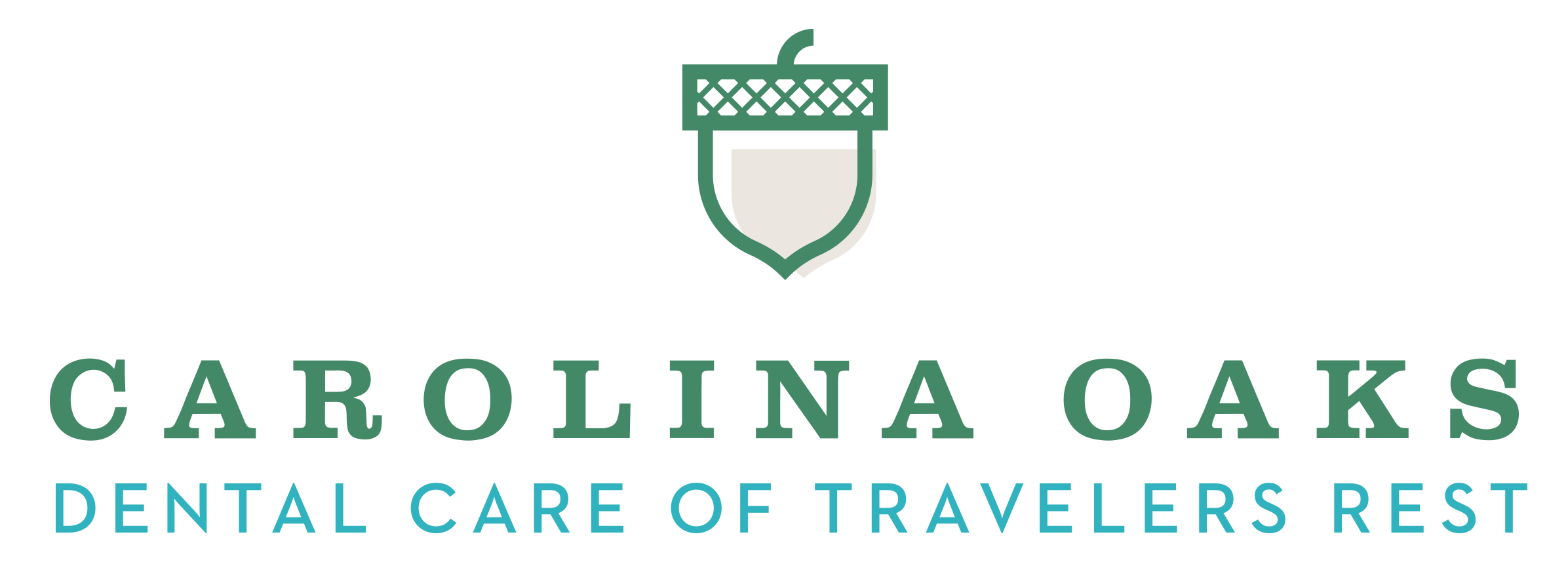If you’ve been on social media, chances are you’ve seen ads and sponsored posts for charcoal teeth whitening solutions and toothpastes. Maybe you even use some of the products yourself. But is charcoal safe for teeth? Do the claims that it whitens smiles and zaps bad breath hold up to scientific evidence? The team at Carolina Oaks Dental Care of Travelers Rest is sharing everything you need to know.
What is Activated Charcoal?
Activated charcoal – which is the kind of charcoal that’s used in toothpaste, whitening products and cosmetics – is the product of heating carbon-rich materials like coal, coconut shells and wood at extremely high heat. It’s then further processed to create charcoal powder with a fine network of pores.
The pores cause activated charcoal to act like a sponge, drawing out toxins. That’s why charcoal is found in water filtration systems and air filters. It’s also used in hospitals for poison control.
That said, while it certainly has its uses, there is no evidence that ingesting charcoal on your own at home has any health benefits. In fact, it may even be detrimental in some cases.
Activated Charcoal for Teeth: The Claims
So why do proponents think brushing with black toothpaste or rubbing charcoal powder on their teeth will be helpful? For one, it’s natural.
Secondly, many believe that in the same way it works for poison control, the pore system soaks up bacteria and stains on the teeth. Combined with its abrasive properties, the thought is that it will leave behind a whiter, cleaner smiler and fresher breath.
Is Charcoal Good for Your Teeth?
There isn’t enough research to determine if charcoal toothpaste is safe or good for teeth in the long-term. A 2017 literature review published in The Journal of the American Dental Association stated there is, “insufficient clinical and laboratory data to substantiate the safety and efficacy claims of charcoal and charcoal-based dentifrices.”
The authors also noted that dental professionals should tell their patients to be careful about using charcoal toothpaste and whitening products.
While we might not know the long-term effects of using charcoal on the teeth, here are some things to consider:
-
Many charcoal toothpastes and products don’t contain fluoride.
Fluoride helps keep enamel strong and more resistant to cavity-causing acids. Bypassing fluoride can leave you more susceptible to tooth decay and cavities. If you’re cavity prone, your best bet is using fluoride toothpaste instead of charcoal toothpaste.
-
Charcoal oral care products aren’t ADA approved.
Products with the seal of acceptance from the American Dental Association (ADA) have demonstrated safety and efficacy.
-
It may not be great for dental restorations.
Research hasn’t determined activated charcoal’s effect on dental crowns, bridges and veneers.
-
Fine particles can get stuck in older teeth.
Research presented at the Academy of General Dentistry 2015 Annual Meeting found charcoal particles adhered to parts of the teeth and cautioned that charcoal powder could become embedded in cracks and imperfections on older teeth.
-
Charcoal products may strip tooth enamel.
Many charcoal toothpastes and powders are abrasive. In fact, the 2015 research mentioned in the point above found charcoal was more abrasive than conventional whitening toothpastes This means it will erode enamel with daily use, potentially causing sensitivity, gum recession and yellowing.
While there are some brands that aren’t too abrasive, because the black particles get stuck in the teeth and gums, it encourages more aggressive brushing, which also damages enamel.
-
The jury is still out on using charcoal for bad breath.
Consumer Reports investigated the use of charcoal in dental, dietary and beauty products. The researchers did not find any evidence that charcoal could cure bad breath (halitosis).
Does Charcoal Whiten Teeth?
Do activated charcoal teeth whitening products work? Only to a certain degree and probably not in the way you’d like. The abrasive nature we talked about means it can scrub away some surface stains, and activated charcoal may also be able to absorb certain molecules that cause these surface stains.
For these reasons, your teeth can look instantly brighter after using it. But, as enamel is lost because of the grainy texture and/or aggressive brushing, the underlying dentin is exposed. Over time, this makes the teeth look yellow. Once the enamel is gone, whitening your teeth will be difficult.
Additionally, surface stains that sit on the enamel can be removed with any number of products, including a regular toothbrush and toothpaste. Deeper stains, called intrinsic stains, will only respond to whitening solutions that penetrate the enamel, such as bleaching with peroxides. Charcoal does not penetrate the enamel.
What’s the Best Way to Whiten Teeth?
The best way to whiten teeth is with professional, in-office whitening. At Carolina Oaks, a Travelers Rest dentist will examine your teeth and gums and ensure whitening will be safe and effective.
They’ll then use medical-grade whitening products that penetrate enamel for lasting whitening without sensitivity or damage to the gums. Professional treatment achieves the best results and it only takes about an hour.
At-home whitening kits have varying levels of effectiveness and certain whitening toothpastes are too abrasive for everyday use. If you do decide to whiten your teeth at home, go for a product with that ADA seal of acceptance. It’s also a good idea to visit your dentist for an exam beforehand to rule out any underlying problems that could be causing discoloration.
The Bottom Line:
There isn’t enough research to establish whether charcoal is bad for your teeth and if the supposed benefits are actually true. For most people, avoiding charcoal toothpaste or, at least, using caution, is wise because many brands are just too abrasive to use every day and not worth the risk.
If you do plan on brushing your teeth with charcoal, opt for a toothpaste that isn’t excessively abrasive and use a soft-bristled toothbrush and proper brushing technique. You may also want to add a fluoride mouthwash to your routine.
Connect With a Dentist in Travelers Rest, SC
Whether you have concerns about stained teeth or bad breath or you’re interested in finding a natural toothpaste that works, schedule a visit at Carolina Oaks Dental Care. Dr. Susan Maxwell or Dr. Adam Coleman will talk with you about your needs and goals and offer personalized, evidence-based solutions.



